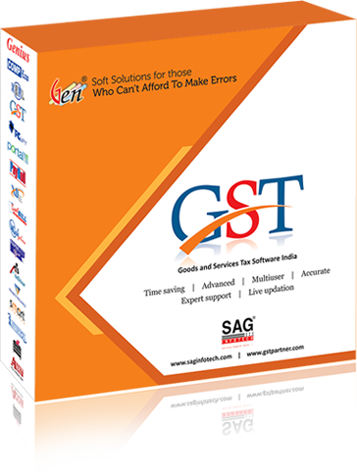As we all know the fact that the GST is aimed to end the previously prevailing cascading taxation framework in India. Under the GST regime, the whole India has come under the roof of one taxation system – complying with the slogan of ‘One Nation, One Tax’.
At this moment the GST is the most debated topic among the masses, people are busy discussing it impacts on the economy of the nation. Everyone is coming out with their own theory to prove their verdict on GST.
Click here to know about GST rate on ready-made garments, sarees, textile industry, fabric, unstitched cloth, handloom in India.
| GST Rate on Garments | ||
| Category | Current Rates | GST |
| Cotton and Natural Fibre | Nil | 5% |
| All Categories of Yarn | Nil | 5% |
| Silk and Jute | Nil | 5% |
| Manmade Yarn, Synthetic Yarn, Manmade Fibre | Nil | 5% |
| Fabric | Nil | 5% |
| Branded Garments more than Rs. 1000 | 2% without CENVAT and 12.5% with CENVAT (Chapter 61,62,63) : 7.5 % (60% Tariff Value) | 12% |
| Other Garments | Garments/ articles of Cotton and not containing other textile : Nil (W/o Cenvat) and 6% w.o. CENVAT
Others : Nil (W/o Cenvat) and 12.5% w.o. CENVAT |
5% (No overflow of credit allowed) |
GST On Cloth in India
It’s a fact that among all these ‘hue and cries’ some sectors are indeed suffered from the implementation of the GST. One such sector is the Readymade garment sector, which is hit adversely by applying GST on readymade garments. A huge protest against the GST is being seen all across the country. The various tax rates levied on Garments industry and the reasons for their protest has been discussed below.
Read Also: GST Help Desk Number, Email ID, Mobile App and Office Address
GST On Readymade Garments
According to the GST tax rates, GST rate on readymade garments and apparel is 5 percent up to ₹1,000, beyond which they are taxed at 12 percent. The same rates also hold true for other readymade apparel such as salwar kurtas, dresses, skirts, tops, and jeans. Further, synthetic and other manmade fibers will attract a higher tax of 18 per cent while other natural fibers (except silk and jute) will be taxed at 5 percent.
Are you looking for GST Software for Garment Industry?
What are you waiting for? Click here now
Reasons For The Protest By The Cloth Merchants Against GST
1) Under the VAT taxation system, there is no tax on job work done in the Garment and apparel industry, as it is considered a ‘subsequent process’ in the manufacture of textile products and not a service. However, under GST, there is 18 per cent levy has been introduced. The Confederation of Indian Textile Industry (CITI) wanted the tax to be reduced to 5 percent.
2) All the intermediary processes like – knitting, processing, tailoring, printing, and embroidery work are done through job work and this has now been put under a whopping 18 percent duty. The industry is of the opinion that the duty should be on the product and not on the process, so, the industry wants the duty to be reduced to 5 percent.
3) It’s a well-known fact that 80 percent of textile production in India is in the SME sector and is done through job works, the units registered as job worker should be either exempted from GST or should have the rate applicable for the principal product. And if the proposed GST tax on Job Work is not reduced, the textile and garment industry will see a huge inflation in the cost of products.
4) Under the GST, the rate on man-made fiber and yarn is 18 percent and on fabric, it is 5 per cent. As the weaver will not be able to take input credit for the entire amount, there is an uproaring demand that the rate on man-made fiber yarn should be reduced to 12 percent.
Read Also: GST To Be Levied on Head Office Operations in Other State
5) Under the old taxation system PET recycled fiber has concessional Excise Duty, while, now under GST, it has been placed along with regular man-made fiber and yarn that attracts 18 per cent rate. However, it will be mixed with cotton during spinning and the cotton yarn attracts only 5 per cent rate, hence the whole process will be complicated.
6) With an inverted duty structure for man-made fiber sector, synthetic products are expected to cost higher by about 5 percent under GST.
Just hope that the information included in the above article will help you understand the impact of GST on readymade garments industry and will further enlighten you to understand the agony of the merchants, due to which they are compelled to protest against the GST taxation system.
For any query regarding GST, do write in the comment section, we would be more than happy to resolve that as soon as possible.







Gst very high for garments for kids.